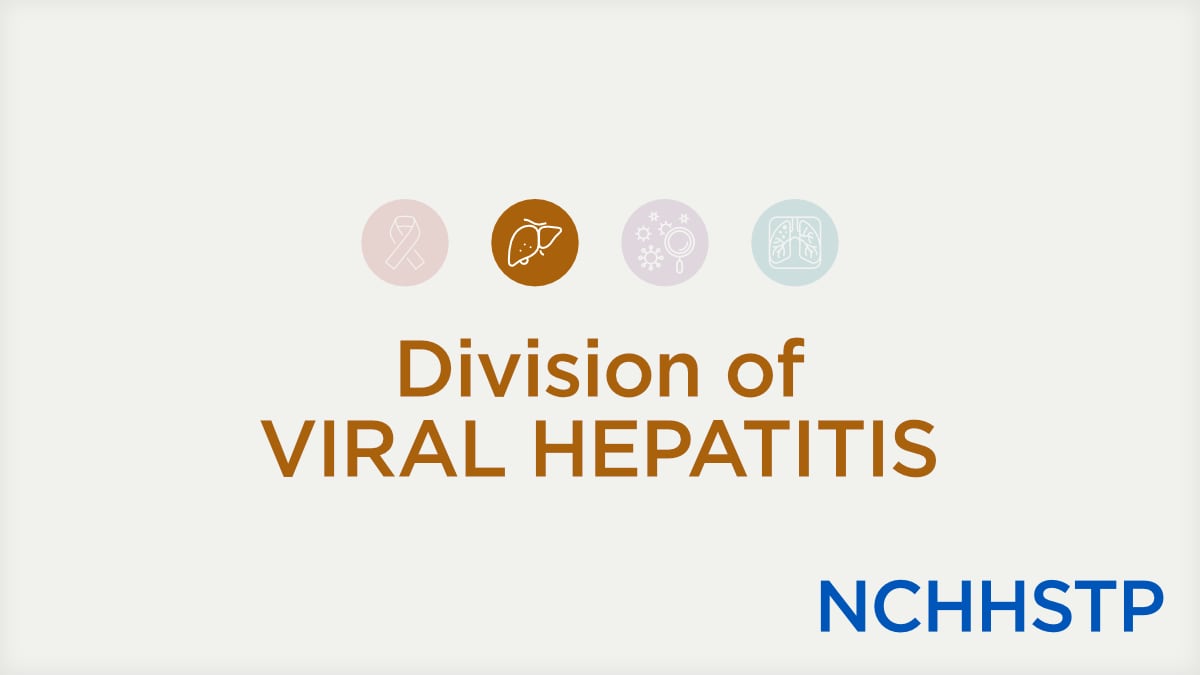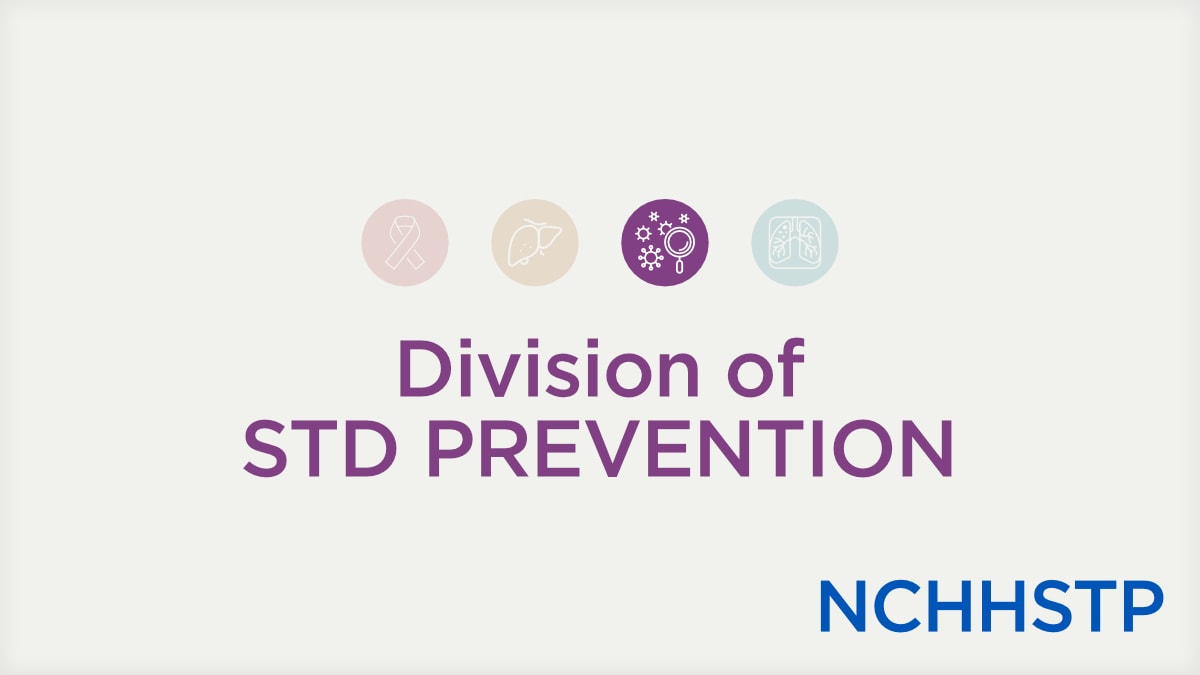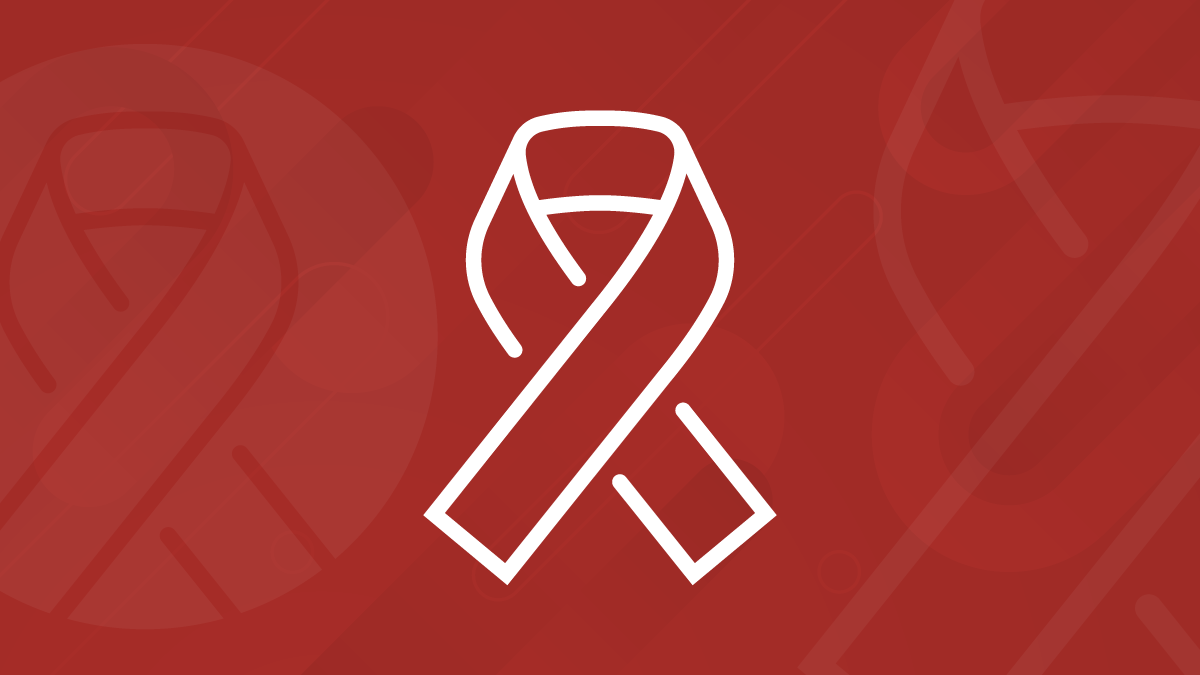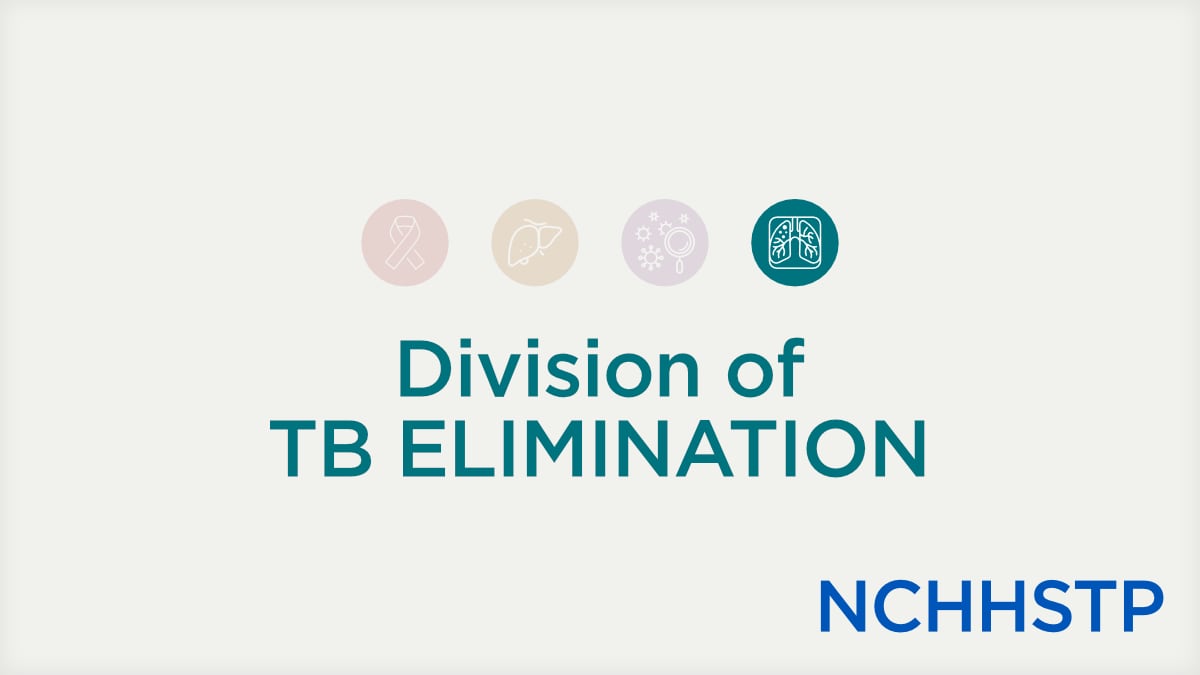At a glance
Update on CDC attack and leadership, NCHHSTP labs at work, CDC requests input for hepatitis C diagnosis and treatment, program operation considerations for sexually transmitted infection prevention, HCV test and cure module, publications and more.

Update on CDC Attack and Leadership

By now, the public health community is aware of the ongoing changes at CDC, and I want to assure you the National Center for HIV, Viral Hepatitis, STD, and TB Prevention (NCHHSTP) remains committed to protecting your health.
On August 8, a gunman opened fire on the Agency's headquarters, in Atlanta. Law enforcement has indicated the gunman's actions were driven by vaccine distrust and disinformation.
Miraculously, no CDC staff, children, or teachers at the nearby childcare center were physically harmed. However, DeKalb County Police Officer David Rose lost his life while courageously protecting the community during the attack. We are forever grateful for his sacrifice.
This was not just an attack on one agency. It was an attack on the values and mission we share - protecting the health, safety, and well-being of every community in this country. It was an attack on public health itself, and it affects all of us who have dedicated our lives to this cause.
I want to thank you, our public health partners. We feel your outpouring of support for NCHHSTP, CDC, and public health in the shadow of this attack.
There are also ongoing leadership changes in the Agency. On August 29, U.S. Health and Human Services Secretary Robert F. Kennedy, Jr. announced Deputy Secretary of Health and Human Services Jim O'Neill, MA, as acting CDC Director.
Your continued collaboration, devotion, and passion for public health reinforces the strength and unity of our shared vision
What's New at NCHHSTP
Better with Beakers: NCHHSTP Labs at Work

Whether in the lab or in the community, our laboratories confront the root causes of HIV, viral hepatitis, sexually transmitted diseases/infections (STD/STIs), and tuberculosis. These infectious disease laboratories continue to innovate, share scientific knowledge, and train the next generation of infectious disease scientists. In this issue, we peek behind the curtain of CDC's viral hepatitis and STI labs.
CDC Viral Hepatitis Laboratory

The CDC Viral Hepatitis Laboratory has the most viral hepatitis subject matter expertise of any public health laboratory in the world and plays a key role in preventing and controlling viral hepatitis in the United States (including hepatitis A, B, C, D, and E).
This laboratory provides specialized outbreak investigation support and technical assistance, which helped to control 88 U.S. viral hepatitis outbreaks between 2020 and 2025. During these outbreaks, CDC's viral hepatitis lab supported state and local health authorities with specimen testing and sequencing, computational analysis, and expert technical assistance - all at no cost. This includes controlling viral hepatitis outbreaks at dialysis facilities, hospitals, pain clinics, outpatient surgery centers, endoscopy clinics, nail salons, acupuncture clinics, jails and prisons, and among international travelers and people who inject drugs. Additionally, CDC's viral hepatitis lab prevents the transmission of hepatitis by assisting national blood donor screening programs as well.
Additional hepatitis lab developments to note:
- CDC's Division of Viral Hepatitis developed a novel lab technology, the Global Hepatitis Outbreak and Surveillance Technology (GHOST), based on application of next-generation sequencing data and novel computational tools. Some GHOST applications include hepatitis A outbreak investigations in 24 States in 2024-2025, as well as molecular tracking of hepatitis C virus transmission during outbreaks in the New York City office-based surgery center and in a Florida interventional pain management clinic.
CDC STI Laboratory

The CDC STI Laboratory contains the world's largest gonorrhea surveillance isolates - with 50,000 unique isolates used in the development and evaluation of new diagnostics and antibiotics. This is important as gonorrhea quickly develops resistance to each class of antibiotic used to treat it. The lab is the sole national reference lab for specific gonorrhea resistance testing.
The lab monitors drug-resistant gonorrhea and assists with AMRTC (antimicrobial-resistant gonorrhea treatment with cephalosporin) operations around the world by:
- Fighting drug-resistant gonorrhea with a new analysis tool that enhances and refines genome sequencing, a technology helping to revolutionize modern healthcare and curtailing the spread of drug-resistant gonorrhea. This was used in Alaska to determine gonococcal strains with increased virulence among thirty-five disseminated gonococcal infections reported from 2023 – 2024.
- Identifying changing resistance patterns to inform gonorrhea treatment guidelines and identifying and isolating new resistant strains overseas to prevent or track what may eventually come to the United States.
The STI lab also maintains the CDC syphilis serum bank, with 650 unique samples of syphilis. These CDC experts assist labs around the country and the world with accurate diagnoses for syphilis and congenital syphilis and provide diagnostic development and evaluation. Other labs around the country and the world rely on this lab for proficiency testing for syphilis, as well as for evidence-based recommendations for syphilis diagnosis.
Additionally, at a moment's notice, the STD lab provides experienced outbreak response for STIs and other emerging diseases, including Ebola, Zika, Mpox, and other emerging infections. State, local, and territorial STD/STI programs rely upon the lab for disease intervention technical assistance and direct support.
Additional development to watch:
- CDC's STD labs collaborating with research universities and manufacturers to develop a novel, point-of-care test for active syphilis diagnosis. They are also managing two contracts to develop rapid, direct-detection tests for all stages of syphilis.
New Products and Resources
CDC Requests Input Regarding Hepatitis C Diagnosis & Treatment

On September 16th and 17th, 2025, the Association of Public Health Laboratories (APHL), in collaboration with CDC's Division of Viral Hepatitis, will hold a virtual convening entitled: Establishing a Road Map for Accelerated Diagnosis and Treatment of HCV Infection in the US in 2025. You are invited to register for access to both sessions (September 16, 2025 from 2:00–5:30 pm ET, and September 17, 2025 from 1:00–4:45 pm ET) via the listen-only line.
If you have interest and expertise in diagnosing HCV infection, CDC invites your input regarding viral-first testing as well as same-day diagnosis and treatment. Also, if you have input on the questions asked during the meeting, you are invited to submit those public comments as well. You can submit questions and public comments through the Federal Register on or before September 24th.
For more information, see the Federal Register notice.
Program Operation Considerations for Sexually Transmitted Infection Prevention
Program Operation Considerations for Sexually Transmitted Infection Prevention
Check out the Program Operation Considerations for Sexually Transmitted Infection Prevention. This new resource provides sexually transmitted infection (STI) programs with suggestions and considerations for planning, implementing, and evaluating STI prevention program activities. This resource provides an overview of relevant STI prevention topics, highlights evidence-based practices, and offers training and professional development resources to support STI prevention efforts. These considerations are intended to help program managers navigate the critical, albeit challenging, task of STI prevention in an ever-changing landscape.
Hepatitis C Virus (HCV) Test and Cure Module

A new 5-hour HCV Test and Cure fundamentals module helps healthcare providers develop core proficiency to screen, diagnose, treat, and assess for cure via five highly interactive lessons. Registered learners can earn free CME/CNE/CE, Certificates of Completion, and an optional HCV Test and Cure Training Certificate.
This project was funded by the Centers for Disease Control and Prevention and developed by the University of Washington Infectious Diseases Education & Assessment (IDEA) Program. A video message from CDC's viral hepatitis director Dr. Carolyn Wester introduces the course, underlining the critical role healthcare providers play in addressing hepatitis C.
Recent NCHHSTP Publications
CDC scientists and researchers continue to move science forward by publishing a substantial number of scientific papers every month in peer-reviewed journals and CDC's Morbidity and Mortality Weekly Report. Here is a summary of recent publications featuring one or more authors from across NCHHSTP.
Division of HIV Prevention

- Aug. 1 - Trends in Sex of Sex Partners and Sexual Identity Among US Adolescents, 2015–2021
- Aug. 1 - Transformative potential of artificial intelligence in US CDC HIV interventions: balancing innovation with health privacy
- July 14 - Adults Aged ≥50 Years Reached by the CDC's HIV Programs Including HIV Testing, PrEP Referrals, and Linkage to Care in the U.S., Puerto Rico, and the U.S. Virgin Islands, 2019-2022
- July 10 - Incentivized community-based syphilis screening: uptake, yield, and cost
- July 7 - Medical Mistrust and Willingness to Use Long-Acting PrEP Among Black and Hispanic/Latino MSM
- June 27 - Validity and Reliability of the Kessler 6 Scale for Serious Mental Illness Among Populations with High Burden of HIV
- June 6 - Use of cognitive interviews to develop PrEP education for men in New York and Alabama
- June 5 - Expanding the Toolbox of Biomedical HIV Prevention Options Through Innovative Design
Division of STD Prevention

- Aug. 13 - Advanced specificity and sensitivity studies relative to a research use only transcription-mediated amplification-based assay for Treponema pallidum RNA detection
- July 10 - Incentivized community-based syphilis screening: uptake, yield, and cost
- June 30 - Assessing alignment of sexual orientation and sex of sex partners among men with primary and secondary syphilis, 2022
- June 30 - Infection positivity among sexual contacts to chlamydia and gonorrhea, STI Surveillance Network, 2021-2023
- June 19 - Clade II Mpox Infections Among Cruise Ship Passengers and Crew Members — United States, 2024
Division of Tuberculosis Elimination

- July 1 - Efficacy and Safety of Higher Doses of Levofloxacin for Multidrug-resistant Tuberculosis: A Randomized, Placebo-controlled Phase II Clinical Trial
- June 27 - Challenges to initiate and complete a 4-month rifapentine-moxifloxacin TB treatment regimen
- June 24 - An evaluation of telehealth services at New York City tuberculosis clinics throughout the COVID-19 pandemic
Division of Viral Hepatitis

- July 15 - Potential impact of frequent testing for hepatitis C virus among people who inject drugs toward hepatitis C elimination in the United States
- July 10 - Temporal trends in hepatitis C incidence among people tested more than once in Georgia, 2017-23: a nationwide, retrospective cohort
- July 3 - Health and Economic Impact of Periodic Hepatitis C Virus Testing Among People Who Inject Drugs
